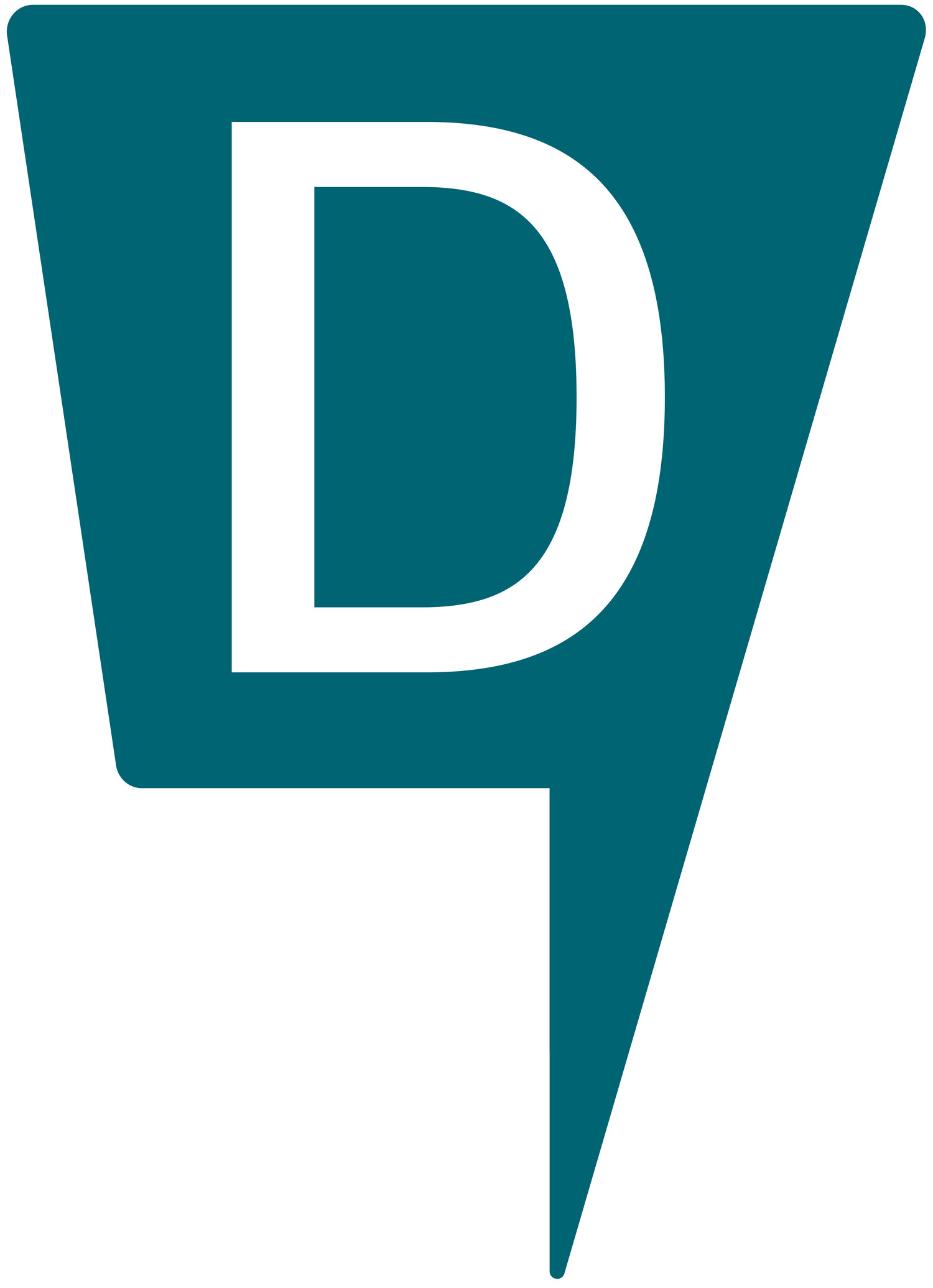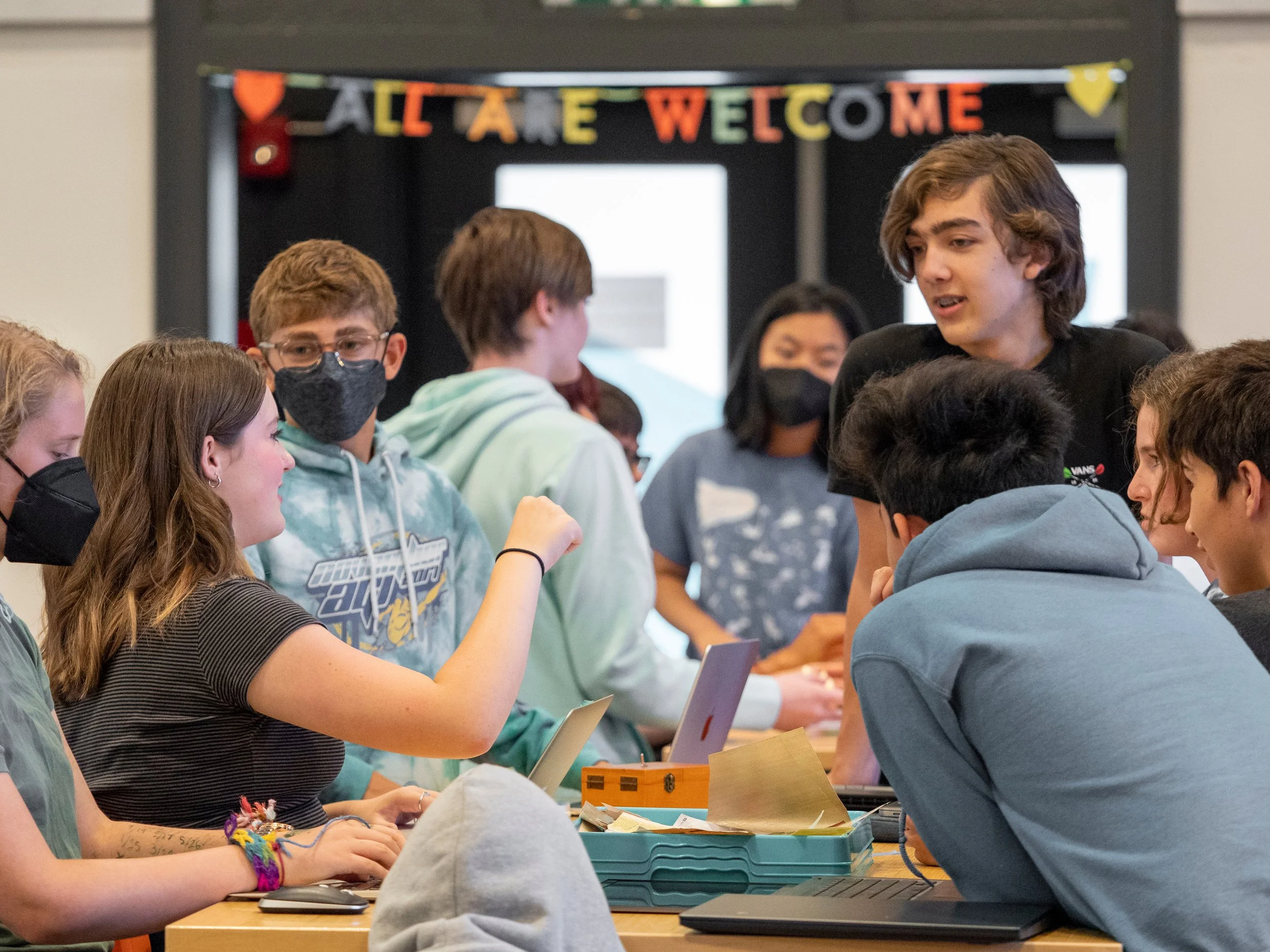Listening at The Downtown School
By Brian Crawford
English teachers have traditionally focused on the four language arts: listening, reading, writing, and speaking. I have always worked hard to cultivate these skills in my classes, as we’ve focused on discussions, debates, presentations, essays, writing, re-writing, one-on-one conferences, performances, and textual adaptations, to name a few. Over the past few years, however, I have had some realizations about these skills that have impacted my curriculum design for this year. I am excited to share these with you!
First, I’ve noticed that my teaching has leaned heavily on reading comprehension and language production: How do we make sense of what others have written and, perhaps more importantly, how do we express ourselves clearly? In other words, how can we get others to listen to and hear us? Related to this but within the context of our current cultural moment, I have recently begun to wonder if what students need more than language production skills might actually be more focus on listening skills, before then focusing on language output.
In my classes over the years, we have developed listening skills, but usually as a step to allow students to share their views. When I have taught debate or argumentation, for example, I have consistently made the point that: “The best debaters are the best listeners.” Why? By listening carefully you can refute the other person’s argument and present your own as the stronger one. In class discussions, I feel that I have also presented listening to others’ contributions more as a vital step in advancing your own–with the ostensible goal of advancing the class’s understanding as a whole. Again and again, I have focused on coaching students in clearly articulating their ideas in such a way that the reader or listener can receive them.
What I have come to wonder is this: Does focusing on getting my idea out there bring people together? Or…could listening to others for the sole purpose of replying implicitly send the message that the other person’s ideas are less than your own? Or even this: Could focusing more on communicating my ideas and less on understanding your ideas fuel marginalizing certain ideas and even people? I’m not sure, but I have begun to wonder. After all, many words related to argumentation have conflict metaphorically built into them: “contradict,” “counterpoint,” “on the contrary,” “contrast,” and “controversy,” are all built from the prefix contra-, “against.” They do not include the prefix com- or con-, “with.” The conceptual framework seems to be: I (or my ideas) am against you (or your ideas), not with you. And as cognitive scientist George Lakoff has noted in Metaphors We Live By, many words used in rhetoric and debate are built upon metaphors of war: you defend your position, protect your argument, convince your listener (from vincere, “to conquer”—in this case the prefix con- is an emphatic prefix, not “with”), defeat the opposing point, engage in a battle of ideas, and so on (see Lakoff’s book for more examples).
People want to be seen and heard, period. Being heard makes us feel safe. So why can’t I tailor my instruction to that very human desire, all the while still developing the skills for clear expression of one’s own ideas? Why can’t I teach the language arts as a means for bringing people together in a shared search for meaning, rather than a hodge-podge of well-crafted monologues? “Conversation” means, etymologically, to “turn about together”--note the together part of this word. How can we teach the language arts such that we both cultivate reading, writing, speaking, and listening, but in a way that brings students together and, ultimately, makes them feel heard and safe?
With this question in mind, I have re-worked parts of my 9th-grade English curriculum this year to focus on some key listening skills–not listening to argue, but listening to understand another human being (while I focus on these skills in 9th grade, I will also incorporate elements of these approaches throughout the other grades). Throughout the year we will supplement our skills development in all of the language arts by:
Understanding how labels impede listening:
The 9th graders begin with a study of Chaim Potok’s novel, The Chosen (1967). In it, we see several characters who form unshakable judgments about others based solely on labels related to religion and political views. As such, characters refuse to listen to each other. “I don’t have to listen to you,” the theme emerges, “because you are a [insert label here]. In fact, I can sideline you because of your beliefs.” Over the course of the novel, however, the characters do grow and move beyond labels, seeing the humanity in others and understanding that, in fact, they have more in common with each other–a commonality to which the label has blinded them. What permits this transcendence? Deep listening and seeing the other person as a complex human whose different ideas are not motivated by ignorance or malice, but by deep-seated reasons that encompass history, religion, culture, and personality. We will use this fictional account to develop strategies for listening to others in real life whose “label” (imposed by any number of sources) may be preventing us from seeing their humanity, truly hearing them, and, ultimately, realizing that we’re not that different.
Deep Listening:
Last year, I attended the Stanley King Institute–a five-day residency workshop in Colorado led by counselors, therapists, psychologists and teachers from around the country. The focus of the workshop was developing the skill of deep listening–asking appropriate questions of another person for the purpose of encouraging them to explore their own ideas and feelings. The goal of deep listening is not to offer my own ideas, suggestions, or counter-points, but to provide a line of empathetic questioning and recasting (paraphrasing or repeating back to the person certain points that they have made) to ensure that I have adequately understood the other person. In class, we will practice these skills both in the context of interacting with fiction (students will role play different characters and engage in deep listening), but we will also practice deep listening as students react to non-fiction texts about various topics. Student A will explain their reaction to the text, while student B engages only in deep listening strategies that will help student A explore and develop their own thoughts. Deep listening is designed to help the speaker feel heard and seen, and to help this person better understand themselves.
Socratic Dialogue:
Socratic Dialogue is a technique that focuses almost exclusively on questioning another person’s ideas for the purposes of spurring a conversation in which two or more people explore an idea deeply together. You present your idea, and then I listen carefully to your points, your specific wording and phrasing, as well as any assumptions that you may seem to be making with your choice of how you articulate your ideas. I then ask such questions as:
“What led you to this conclusion?”
“Why do you think what you think?”
“What would happen if we viewed the topic in this other way?”
“How does A relate to B?”
“Could you give an example?”
“How would this other person react to that point?”
“How are A and B similar? Different?”
“What do you mean by [the word used]?”
And so on.
While Socratic Questioning can be used as a form of debate (in which I ask questions for the sole purpose of exposing the flaws in your argument), our approach will be more in line with Plato’s understanding of this method: to interact via authentic, questioning-heavy dialogue for the purpose of mutually understanding a topic more clearly. We are not trying to prove each other’s ideas wrong; we are listening to each other and learning together.
Moral Psychology:
One final way in which students this year will practice listening-for-understanding is through a supplementary peek into moral psychology–that realm of psychology concerned with how our ideas form (based on our personality, background, culture, identity, and so on). While the focus of the class is the four language arts, understanding some basic tenets of how ideas form will help students better understand that others hold differing views not because they have malicious intent or because they are being contrarian, but because their ideas have formed from a large number of cultural and personal influences. To help understand this, students will participate in the Open Mind Platform training–an online tool developed by psychologists that uses cognitive science to facilitate meaningful discussions across ideological divides. Students will then use the tools presented in the training–first in role plays as fictional characters from our readings, and then in discussions together. Students will explore the epistemology of their own ideas (how their ideas formed), then explore the epistemology of their classmates’ ideas–all with the goal of empathetic listening and validating others’ views. When we then combine this approach with deep listening, Socratic dialogue, and transcending labels, what we achieve (hopefully) is a better understanding of each other as complex human beings.
Developing listening skills is but one part of the language arts curriculum. Throughout the year, students will explore a variety of fictional and nonfictional texts, all the while honing their writing, speaking, and reading skills (and yes, we will spend plenty of time on persuasive and argumentative writing and speaking). But by laying a foundation for effective listening early in their high-school career, our students will set themselves up to become effective communicators in a diverse world in which yes, your voice matters, but also in which people long to be seen and heard.





